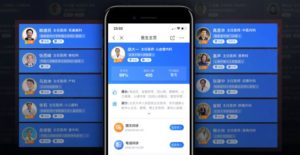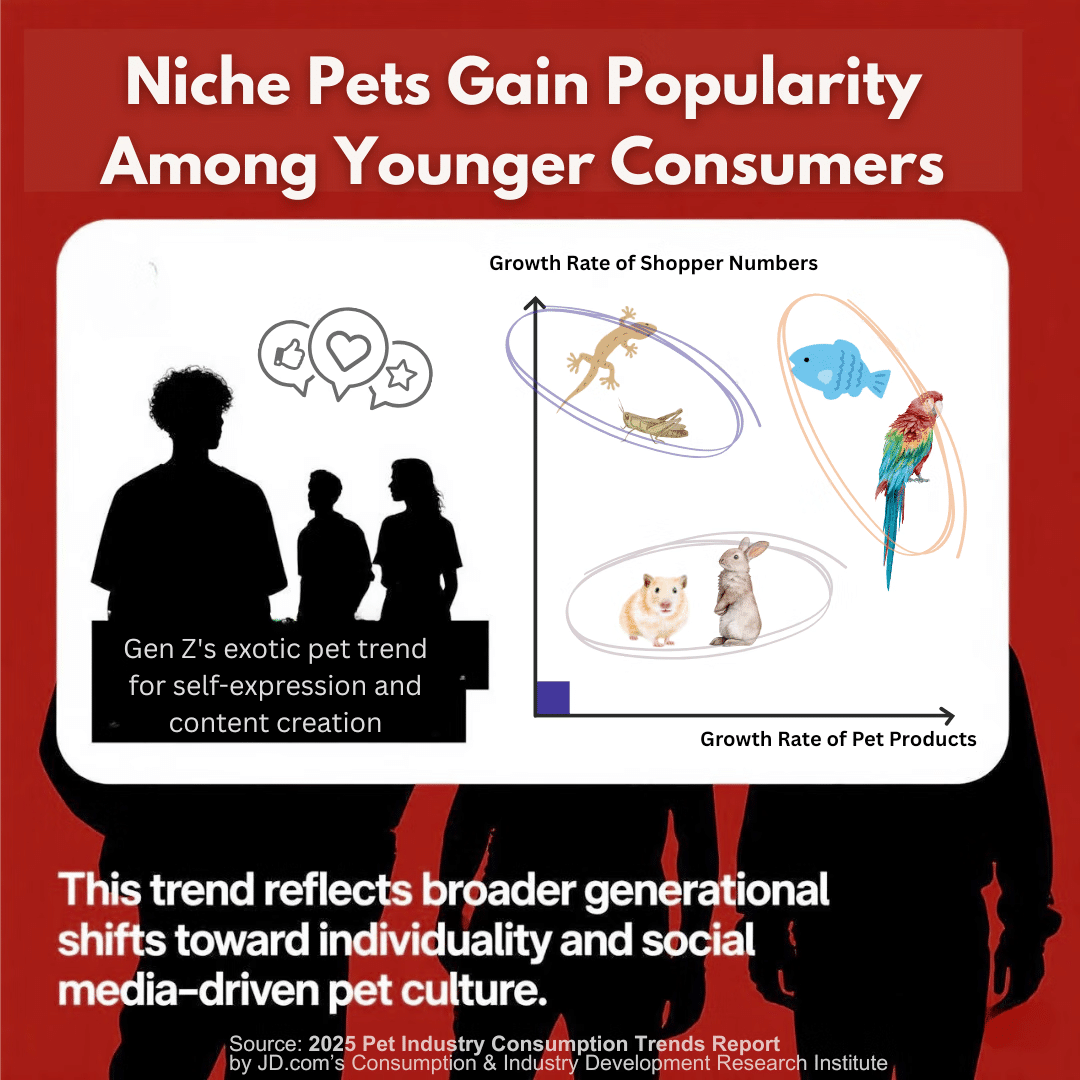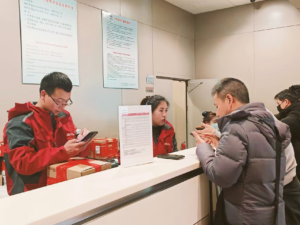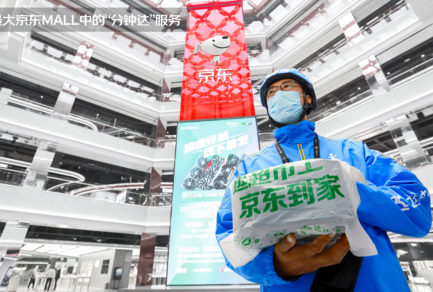Sep 24, 2020|
In-Depth: “Talk to My Doctors”, Patients Obtain More Confidence and Convenience from JD Health
by Vivian Yang
Who says doctors have to work in hospitals and clinics? “I’m a doctor with an office in an internet company,” said Xingxing Xiao, a full-time JD Health respiratory doctor who engages with patients exclusively online as part of China’s rapidly expanding telemedicine industry.
As she talked, Dr. Xiao typed continuously on her keyboard, answering questions in multiple chat boxes that seemed to multiply on the screen.
“Compared with my last job in the hospital, working here is less stressful, but the work pace is equally intense as we deal with a much larger amount of daily inquiries on the internet,” said Dr. Xiao, who used to work out of Beijing’s 301 hospital, one of the most well-known hospitals in China.
Her reach here is wider too. “Patients are from everywhere in China and even out of China,” she said.
The daily volume of medical consultations on JD Health’s online platform is now near the total number of patients serviced by 20 offline hospitals per day on average, according to the company.
“Treating people online can be more complicated,” Dr. Xiao said. “For example, patients’ drug resistance varies in different regions. We need to be more alert to guide their drug use. And we need to give timely feedback on the internet and show our professionalism with a strong sense of service.”
Of the 300 full-time online doctors at JD Health, more than 60% come from China’s top-level “AAA“ hospitals, 80% hold attending doctor or above titles, and 90% have over 10 years of clinical experience. They each work eight hours a day in three rotating shifts, to ensure that patients’ inquiries will be received around the clock. Over 90% of initial online inquiries receive a response within 3 minutes. Some inquiries are quick, involving a simple question and answer via in-app messaging. Others require phone or video calls to discuss patients’ concerns in more detail.
If Dr. Xiao were still working in the hospital, she would have gone to the frontline to fight COVID-19 earlier this year— but even working at JD Health, she did not leave the battlefield. When the virus began to spread in January, Dr. Xiao and her colleagues were suddenly faced with soaring medical inquiries pouring into the system. During that period, the entire team handled upwards of 150,000 patient interactions or more a day. That’s 500 patient interactions a day per doctor at the height of the pandemic—all made possible by the conveniences and ease of telemedicine.

Dr. Xingxing Xiao was invited to attend the gong-striking ceremony for JD”s listing in HKSE
In the first half of the year, Dr. Xiao alone conducted more than 30,000 patient interactions online and participated in dozens of livestream events to give professional health and medical advice to over a million viewers. When JD was officially listed on the Hong Kong stock market in June this year, Dr. Xiao was invited to strike the gong at the listing ceremony in Beijing, as a recognition of JD Health doctors’ role in the fight against COVID-19.
Many online doctors at JD Health take pride in offering voluntary medical consultations for the public via the internet, especially for people from remote and impoverished regions. As the first generation of full-time online doctors in China, they are keen to reach a wider audience, and to embrace the digitalization trend in order to fully demonstrate the value of this new industry.
To cure sometimes, to relieve often, to comfort always
Dr. Yuhong Zhao is a full-time pediatrician at JD Health. Placed on his desk at JD headquarters is an eye-catching hand-written card that reads “50Y, control your emotions.” Apparently, it is a self-reminder to not get too emotionally involved with the well-being of his patients.
“50Y means I’m already 50 years old now,” he explained. “I always get emotionally involved when I interact with my patients. I might be different from other doctors.”

Dr. Hongyu Zhao, a full-time pediatrician at JD Health
As a veteran pediatrician, Dr. Zhao knows how medical support via the internet can make life easier for many young parents and their sick kids. “Of all the patients I previously saw in the hospital, I think, generally speaking, hospital visits were not necessary for two thirds of them. But you know, Chinese parents are always so anxious. They can only rest assured after they talk to a doctor.”
Now, doctors are only a click of the app away. Many JD Health users, which in Dr. Zhao’s case are often new mothers, rely heavily on their mobile phones for support. Questions might include: When will my baby stop hiccupping? Should I change the baby first before feeding him milk, or the other way around? Answering this kind of question requires strong communication skills and a soft touch— and plenty of patience that hospital doctors might not always have time or energy to hone.
For Dr. Zhao, it’s fairly easy to address users’ concerns based on a few questions or photos sent via messaging, thanks to his extensive experience. In some cases, he’ll speak to the patient via phone or video call. In addition to treatment advice, he always offers tips for baby care, which young parents are eager to learn. Oftentimes, he’ll share a few words of encouragement and comfort too.
Sometimes young parents will be led astray by inaccurate information they’ve collected online from unverified sources, and will challenge his guidance. In those moments, the placard on his desk is a reminder to control his temper. Only with patience and reason can he gain their trust, he said.
Dr. Zhao cited an aphorism originated in the 1800s by Dr. Edward Trudeau(1848-1915) from the U.S.: “To cure sometimes, to relieve often, to comfort always.” This seems truer than ever for today’s telemedicine doctors.
Though there is no face-to-face physical contact, a digital platform makes it easy for patients to revisit their preferred online doctors, and for doctors to have a full picture of their patients’ health profiles based on their past interactions. Additionally, customers can interact with their doctors through the rating and feedback systems, all of which help build up trust and understanding between the two sides.
Family doctors
JD Health has taken one step further to consolidate the bond between patients and doctors with its family doctor telemedicine service. By joining this program, users can designate a customized medical consultation team composed of 3-4 online doctors with specialties of the patient’s choice, who will attend to the long-term health management of their family. As the service is uniquely designed to serve family users of four to eight members which usually include children, elderly patients, and people with chronic diseases, this requires family doctors to have comprehensive knowledge to handle a variety of health problems for people of all ages.
Currently, JD Health’s team of doctors covers five main medical divisions: Internal Medicine, General Surgery, Gynecology, Pediatrics, and Traditional Chinese Medicine, with respective sub-divisions for more specialized fields. They work closely to ensure the best medical services and advice for their patients.

Doctor’s profiles page in JD Health’s APP
In fact, in many countries in the world such as the U.S., general practitioners who provide basic and integrated medical services comprise the bulk of family doctors, forming a grassroots-level support for a hierarchical public health system. In contrast, China has a large gap in the number of general practitioners. Patients tend to over-rely on the hospital system, which can result in stressful wait times and ultimately less attentive care.
Based on the primary public health service requirements of WHO and WONCA (World Organization of National Colleges, Academies and Academic Association of General Practitioners/Family Physicians, established in Melbourne, Australia in 1972), there should be at least one general practitioner for every 2,000 residents. China’s national health system guidelines also set the same standard to be achieved by 2030. But at this moment, China only has 350,000 general practitioners, a shortfall of 300,000.
To fill the gap and meet Chinese consumers’ rising demand for healthcare services, JD Health’s family doctor program was created to offer innovative solutions for current conditions. The latest white paper released by iResearch consulting firm showed that Chinese customers are spending an equal amount of money on family health products and services as they do on medical treatment. The importance of health management and disease prevention is a growing priority in China.
At the family doctor telemedicine program’s launch event this August, JD Health CEO Lijun Xin vowed that in the next five years the company will provide healthcare services to 50 million Chinese families. He emphasized that the program offers patient-centered services, in which the patient’s preferences come first. This is a key difference from the hospital-centered model, in which patients have little choice about the care they receive. Meanwhile, the “online+”healthcare model will digitalize health services with smart capabilities, offering high quality standards and services.
Admittedly, family doctors cannot do everything. Their value exists in their roles as essential health gatekeepers for individual people and as stratifiers for the public health system. First, by knowing a person’s family health conditions and history, a family doctor is able to make timely intervention to mitigate patients’ health risks. Second, they serve as a bridge to connect their patients with appropriate medical resources, and can help them to conduct effective communications with other medical specialists or institutions.
“We hope to let our users feel that they are taken good care of with warm hearts, provided with practical help, and that they have spent their money for really good value”, said Xin, describing what he sees as the value proposition of the family doctor program. “To achieve this goal, we must keep on delivering trust and professionalism, which are JD.com’s key commitment to our customers.”
Dr. Zhao hopes that with the development of telemedicine, family doctors will be given more exposure to the general public through online and offline channels. The more people know about them, the greater trust and engagement they can build with their patients.
“Perhaps someday we can be like those lawyers,” he envisioned. “When my patients are asked about their health conditions, they will just say ‘Talk to my family doctor’.”





 This Harbin tourism boom has also spurred a surge in sales of winter apparel. JD.com’s data indicates a rapid growth in the sales of warm clothing items such as down jackets, snow boots, and thermal underwear between January 1st and 7th. The sales growth is especially pronounced in southern provinces and cities such as Jiangsu, Zhejiang, Guangdong, Sichuan, and Shanghai. Notably, tall snow boots registered a 206% year-on-year increase in transactions, while padded cotton caps and thickened long down jackets soared by 158% and 134%, respectively. Beyond clothing, travel gear has also seen a considerable uptick, with a 98% year-on-year growth in transactions for large suitcases and travel backpacks in these southern regions.
This Harbin tourism boom has also spurred a surge in sales of winter apparel. JD.com’s data indicates a rapid growth in the sales of warm clothing items such as down jackets, snow boots, and thermal underwear between January 1st and 7th. The sales growth is especially pronounced in southern provinces and cities such as Jiangsu, Zhejiang, Guangdong, Sichuan, and Shanghai. Notably, tall snow boots registered a 206% year-on-year increase in transactions, while padded cotton caps and thickened long down jackets soared by 158% and 134%, respectively. Beyond clothing, travel gear has also seen a considerable uptick, with a 98% year-on-year growth in transactions for large suitcases and travel backpacks in these southern regions. JDer Lab #6 with Bo’er Chen: Witnessing JDD’s Pursuit for Excellence
JDer Lab #6 with Bo’er Chen: Witnessing JDD’s Pursuit for Excellence



